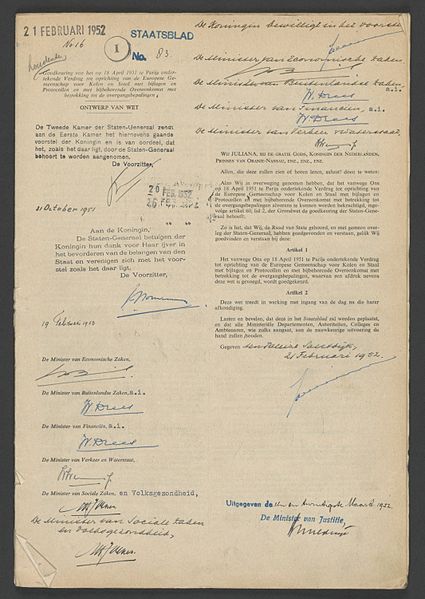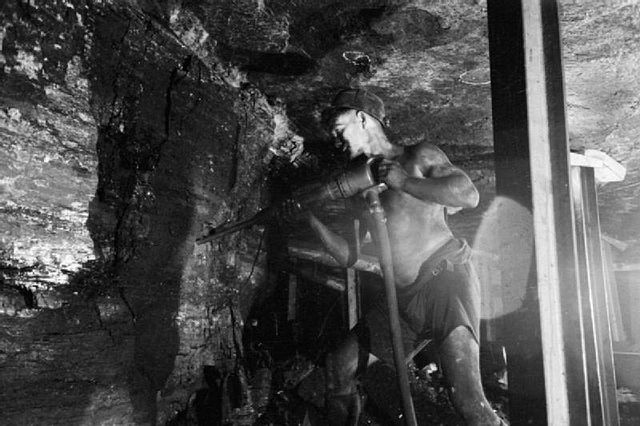European Coal and Steel Community
The European Coal and Steel Community (ECSC) was a European organization created after World War II to integrate Europe's coal and steel industries into a single common market based on the principle of supranationalism which would be governed by the creation of a High Authority which would be made up of appointed representatives from the member states who would not represent their national interest, but would take and make decisions in the general interests of the Community as a whole. It was formally established in 1951 by the Treaty of Paris, signed by Belgium, France, Italy, Luxembourg, the Netherlands, and West Germany and was generally seen as the first step in the process of European integration following the end of the Second World War in Europe. The organization's subsequent enlargement of both members and duties ultimately led to the creation of the European Union.
Former headquarters of the High Authority in Luxembourg
Image: Oprichtingsverdrag EGKS NL Ha NA 2.02.20 10123
Coal is a combustible black or brownish-black sedimentary rock, formed as rock strata called coal seams. Coal is mostly carbon with variable amounts of other elements, chiefly hydrogen, sulfur, oxygen, and nitrogen.
Coal is a type of fossil fuel, formed when dead plant matter decays into peat which is converted into coal by the heat and pressure of deep burial over millions of years. Vast deposits of coal originate in former wetlands called coal forests that covered much of the Earth's tropical land areas during the late Carboniferous (Pennsylvanian) and Permian times.
Bituminous coal, the most common coal grade
Coastal exposure of the Point Aconi Seam in Nova Scotia
Coal miner in Britain, 1942
Coal production of the world in 1908 as presented by The Harmsworth atlas and Gazetter






